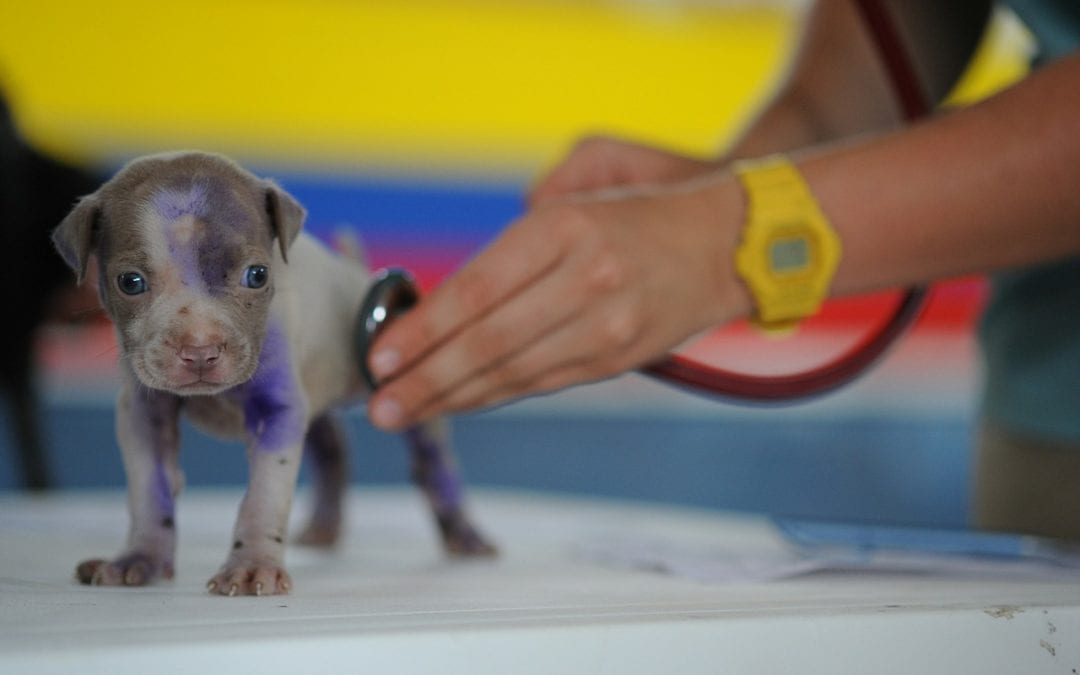It’s National Veterinarian Technician Week! When you visit our clinic with your furry friend, you might notice that a veterinary technician handles much of your appointment. But what exactly does a veterinary technician do?
Veterinary technicians receive formal education and training
Veterinary technicians—or nurses—have earned an associate degree in veterinary technology from a college accredited by the American Veterinary Medical Association (AVMA). Their studies cover animal anatomy and physiology, pharmacology, animal handling, animal nursing, anesthesia, radiology, surgical nursing, laboratory skills, and more.
Once technicians complete the 18- to 36-month veterinary technology program, they must pass the Veterinary Technician National Exam (VTNE) to become licensed. While some hospitals employ veterinary assistants to help care for pets, many tasks are legally required to be handled by licensed veterinary technicians.
Veterinary technicians wear a lot of hats
During your pet’s veterinary visit, the technician will be hard at work in the exam room and behind the scenes. Depending on your pet’s needs, your veterinary technician may:
- Greet you in the exam room and ask questions about your pet’s health, behavior, and history
- Conduct a basic physical exam
- Hold your pet while your veterinarian examines her
- Prepare your pet’s medications and teach you how to administer them at home
- Obtain blood, urine, or other specimens for routine laboratory work
- Prepare blood slides for evaluation
- Examine feces under a microscope and look for evidence of intestinal parasites
- Assist with X-rays, measuring the part of the body that needs to be captured, setting the machine, and holding the pet in the ideal position to obtain the image
- Maintain much of the clinic’s equipment, instruments, and supplies
- Assist with anesthesia, placing an IV catheter, calculating and administering the proper amount of IV fluids and anesthetic medications, placing the breathing tube, and preparing the pet for surgery
- Assist during surgery, monitoring anesthetic depth and vital signs
- Assist during recovery after surgery, staying by her side to keep her warm and comfortable as she regains consciousness
Veterinary technicians play an integral role in keeping pets healthy
They play an integral role in keeping pets healthy and happy, and we appreciate all that our technicians do to help keep our hospital running smoothly.
Next time you come to our clinic, take a moment and thank a veterinary technician!

